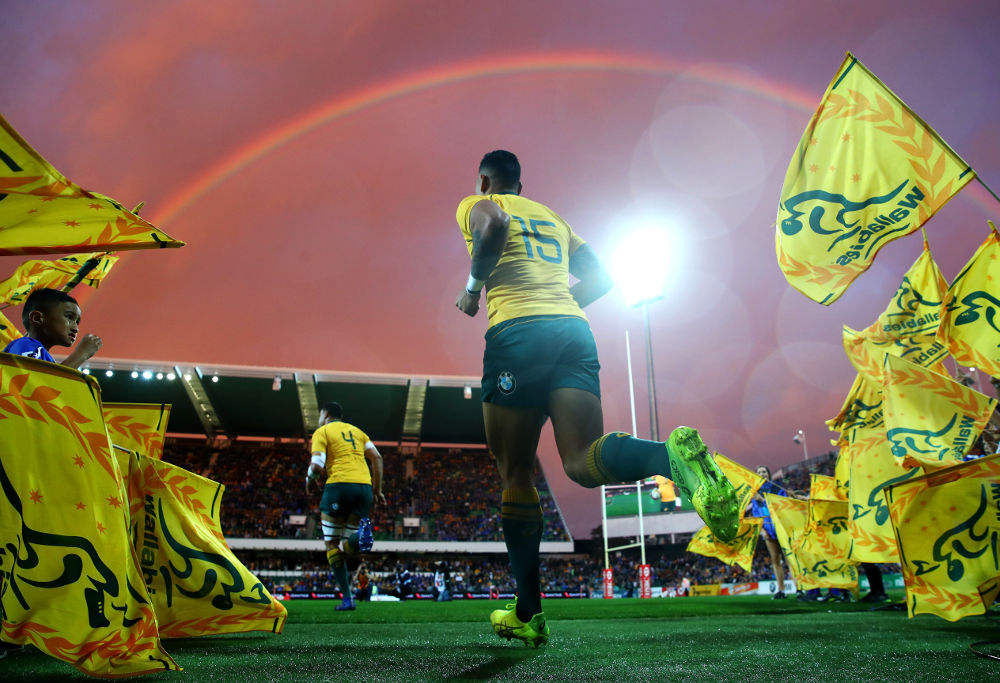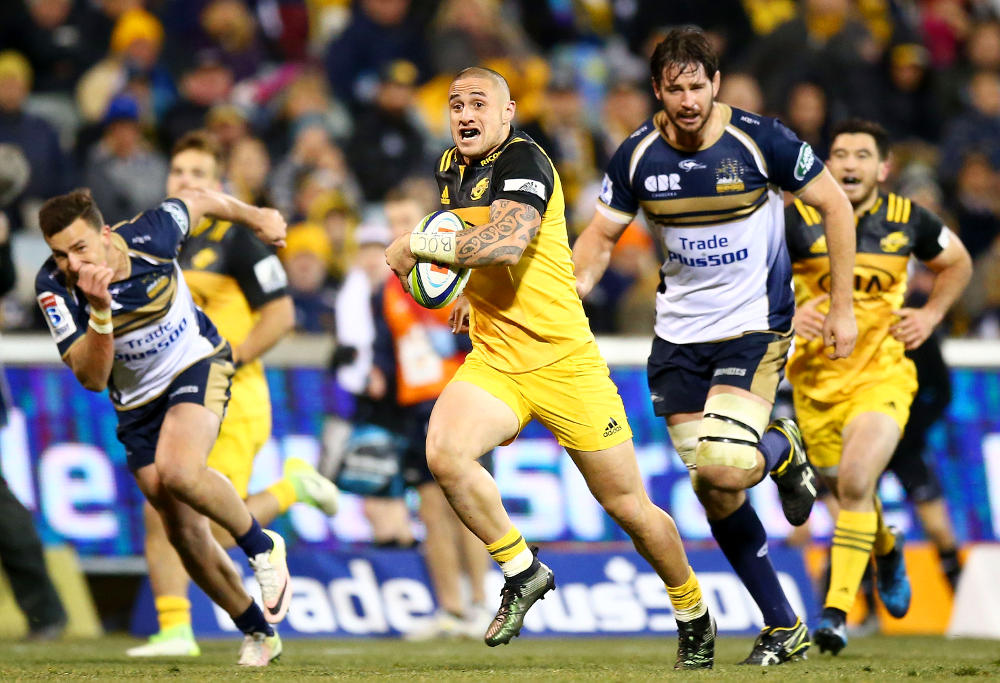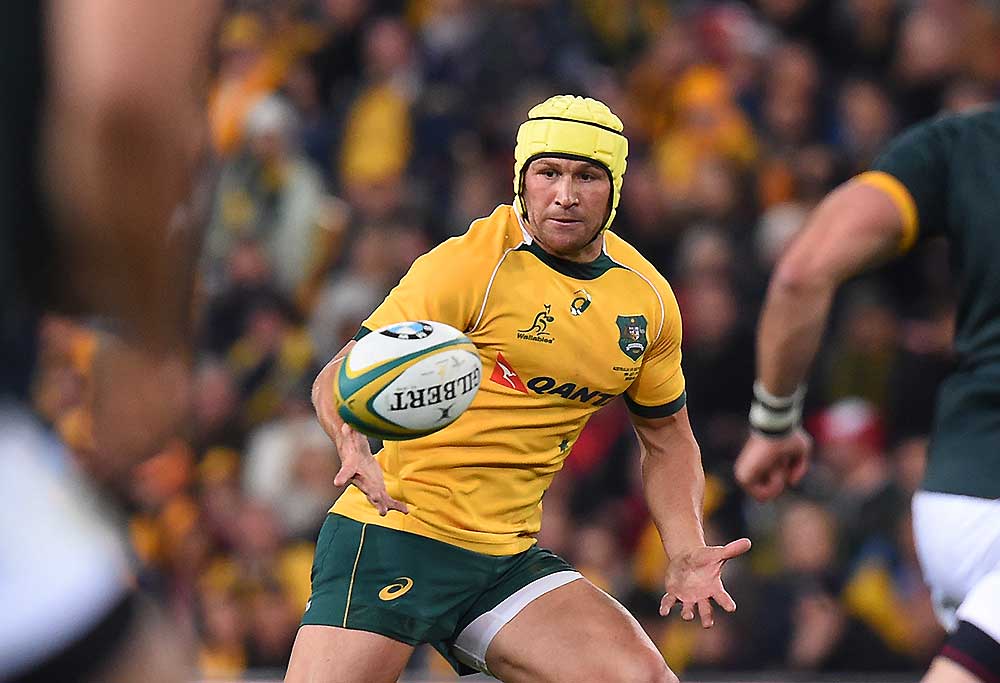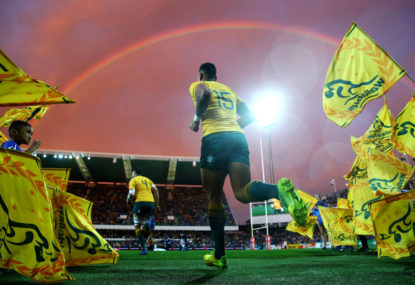Spiro’s nostalgic trips down memory are great reads, but he seems to have one foot perennially stuck in the past.
His recent article, ‘Folau’s love of rugby could save the Waratahs in 2018‘ misses some very critical points in certain areas of its discussion.
In the amateur era – an era that seems close to Spiro’s heart – they played almost solely for the love of the game because their day jobs paid the rent and looked after their families.
Today, the game of rugby itself does this with huge financial rewards. If they manage their money well, top players can retire or semi-retire after their playing days are over.
Let me assure you that if the players of the past were remunerated so handsomely as per today’s contractual offers both here and overseas, they would still love the game as players do now but they would equally be every bit as persuaded by the lure of money.
That is completely understandable and fair enough – do not be so naive as to believe they wouldn’t – but this by definition does not mean they would suddenly love the game less.
Perhaps one could argue that those past players would love the game even more because now they are paid to do the thing they love and can still support loved ones.
Also, Spiro, you often infer that past great leaders and tacticians on and off the field of battle for the Wallabies hold all the answers to Australian rugby woes – people like your coaching idle, Rod Macqueen, for example.
However, the truth is that no-one has a magic wand. Champions of the past will not by definition win today’s on-field battles or the war long term.
Everything has changed both on and off the field in today’s modern professional era. Some past greats would swim and some would sink. Some perhaps would not set Australian rugby on fire with the same vigour they once did.
The great poet Lord Byron once wrote, “I love man not less but nature more,” with the link being that man is simply a part of nature and thus loves both equally and sees man not as separate or more or less important than any part or total of the rest of nature.
Many of today’s players love rugby not less but family and future more.
Here the link is that rugby in the modern professional era is an equal part of that future and financial solvency of the family, so both rugby and the financial rewards it brings are loved equally. Though, yes, in this case, family rides above all else, it is still part of the greater equation.
If players can play the game they love and in doing so get greater financial security, they can and often will eventually take it
So I completely disagree with any inference or claim that players of the past loved the game more than anyone today – in fact, I believe that to be complete and utter rubbish.
If past players had such financial parameters to consider, their loved ones would also have a say in it, just as they do now. Money that can set you and your family up for life is not to be scoffed at, and for that reason the players of the past would have been every bit as tempted as today’s players.
Spiro champions Israel Folau, and I have no problem with this – he is a wonderful player and, as pointed out in the article, is committed to Australian rugby these days. Hats off to him.

(Photo by Cameron Spencer/Getty Images)
But let us be fair to others who have left Australian shores – or, perhaps in your opinion, Spiro, may not seem to love the game as much.
Folau earns top dollar from his playing contract and many great sponsorship deals because he is a very high-profile player who is guaranteed a place in the Wallabies, so overseas offers may or may not be as enticing right now in his career.
He already earns a huge income from Rugby AU’s bid to keep him and his drawing power in local arenas, and he can always go overseas at the end of his career.
Folau also does not play in a position like most of the forwards where the body gets pounded for 80 minutes, which can shorten careers.
These players may decide to make hay while the sun shines if their rewards in Australia are not comparable to those if Folau or David Pocock.
On that note, Rugby AU paying David Pocock the amount they did to be out of Australian rugby for a full year was mind-numbingly stupid and reeked of desperation – but more power to Pocock’s management for swinging the deal.
As for the players playing here not loving rugby, the evidence does not support the conclusion.
The Force fought tooth and nail to stay in Super Rugby, and the club is fighting on. Players have moved to other clubs here and overseas because the future of the Force was uncertain and they have families and bills to pay and futures to take care of.
Many past players were often more easily rooted to their local clubs and home states and towns due to their day jobs. Competition was localised. Furthermore, rugby itself was not the big money global marketplace it is now, nor was it even at the beginning of the professional era.
Australian rugby has also suffered in recent years from poor top-end management, and I agree that there is a lack of emphasis on grassroots rugby.
The talent pool was spread too far across five franchises, thinning it out and thus weakening the overall strength of the Australian conference. The evidence is pretty clear on that in the later stages of the Force before its demise.
This is amplified by an era when New Zealand rugby is well organised and well managed with better coaches across the board and greater playing depth.
Getting repeatedly beaten by New Zealand franchises, however, doesn’t mean the players are not committed or less passionate.

(Photo by Mark Nolan/Getty Images)
The fact is that they were an army spread too far across the front lines. They lost too many experienced officers and veteran soldiers overseas – they lacked leadership at central command and in some clubs at coaching level – and finally suffered from a lack of cohesion or planning from the administrative level, through to club level and down to the grassroots.
Rugby AU and others, through the disintegration of the administrative integrity of the national governing body coupled with some poor decision-making – from tactics and selection at both the Super Rugby and the national level to indifferent player management that includes a hard-to-fathom protocol for player discipline that is supposedly equal for all – have slowly eroded a great deal of belief in Australian rugby and in recent times brought into question the culture both on and off the field.
Some of that lack of belief and faith in the powers that govern the game and the state of the game in Australia have manifested to some degree in a lack of belief on the field.
This is not a lack of love of the game itself but a deep frustration at the way it is being run on many different levels.
There is a difference, and it is a very important one.
Yes, New Zealand, even after losing players, still has an unrivalled vastness of talent to draw from, including better-equipped coaches in many facets of the game right down to school level.
But let’s be honest: it wasn’t the lack of love for the game on the part of the players that was killing Australian rugby; it was a lack of coordinated, well-planned support for that love of the game and a certain lack of respect for the game, including for fans who love the game.
The Force fiasco, unfortunately for all concerned, needed to happen, but certainly not in the manner it did, and it could have been avoided if Australia had stayed with four franchises in the first place.
Some may disagree, and that’s fair enough, but going to five Super Rugby franchises was one of the worst decisions in Australian rugby administrative history.
It began well enough, but as the money was spread thin and got thinner the lure of overseas scouts became more tempting and the procuring of genuine high-quality coaches less affordable.
Poorly managed national infrastructure, a lack of player and coaching depth at most Australian franchises and, to add insult to injury, getting battered by New Zealand sides exposing all of the above led some players to perhaps take their passion for playing the game overseas.
They hadn’t lost their deep love for the game, they just wanted to transfer it to somewhere better organised and cashed up to reward it.
True, overseas poachers didn’t help. Michael Cheika’s infamous Giteau Law was perhaps necessary at some point, but it was ill-timed or at very least short-sighted with regard to the long-term effects after the 2015 World Cup. It was not well considered when Australian rugby stocks were already stretched across five franchises.

(AAP Image/Dave Hunt)
Hopefully we will see a new lease of life in Super Rugby and the Australian and indeed even South African conferences.
On that note, many top New Zealand players have gone overseas as well or are leaving at the end of the year, but their clubs do have the depth to sustain the losses in most positions – though the Chiefs were arguably hit the hardest.
So, Spiro, there are many mitigating factors in the now professional era that were not present in amateur times and even at the beginning of the professional era, when contracts were not at the giddy levels they are now.
There is one more thing I would say, though – the lure of playing for your national side has taken a hit. I would argue that many modern players do not put playing for their country at the premium they once did.
Is it still important? Yes, but if their financial future and that of their families lies elsewhere, many, especially those with an injury toll, fringe international players or the long-term bench-warmers, will still play the game they love elsewhere to secure their futures.
In doing so, they willingly put playing for their country on the back burner or relinquish the dream altogether unless they meet the criteria. Some are even enticed to play for other nations.
Today’s players love rugby not less but family and future more.
Players and fans in Australia would just like rugby administrators in this country to show they genuinely love the game as much they do – to show they give a damn about the state of the game here from grassroots up to the Wallabies, not just about Rugby AU itself.
New Zealand can afford to make the success of the All Blacks paramount across the game because of the place the brand has in sport domestically and the presence it has globally and because, more importantly, they have well-oiled infrastructure from the top down and the bottom up.
Perhaps we could say New Zealand Rugby Union’s motto is, ‘We love grassroots rugby not less but the All Blacks more’.
In other words, they are one and the same because in New Zealand future All Blacks are bred, trained and coached to a very high level within the well-oiled rugby programs they have at the grassroots level.
By the time they reach even the National Provincial Championship, all the youngsters have the basics of the game drilled into them, so it is already second nature.
Australia is apparently going to try a similar structure under the new regime whereby there is more communication between coaches at all levels, especially Super Rugby and international rugby – which is not just the Wallabies, let’s not forget.
One thing is for sure: this time around there will be no lack of love for the game from the new Kiwi CEO, and surely that’s a good thing for Australian rugby.
































































































